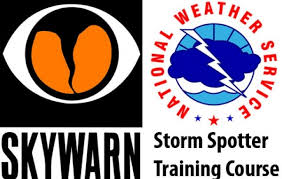Becoming a Net Control
One big aspect of amateur radio is to provide a public service. The FCC acknowledges that in the the first paragraph of the Part 97 rules as: Recognition and enhancement of the value of the amateur service to the public as a voluntary noncommercial communication service. Plus in the following paragraph they include the words: Expansion of the existing reservoir within the amateur radio service of trained operators technicians and electronics experts.
A great way to provide a public service and maintain your skill as an operator is to be a net control station. Being net control is rewarding and not overly difficult. And the easiest and most accessible form of net control operation is to volunteer for your local net on a VHF repeater. Most repeaters sponsored by an amateur radio club or other organization usually will have a weekly swap or fun net. These nets are a little more relaxed than the traffic nets you’ll find on HF or the severe weather nets that storm spotters may be involved in. But they are important none the less and I encourage anyone wanting to be more active in their local amateur radio community to be involved as a net control operator for a local net.
What does it take to be a net control station? Really not much- although there are some items that can make the net control experience a lot easier So I’ll go over the base equipment you’ll need‚ take you through a sample net‚ and some tips and tricks to make life easier
First off‚ the equipment. Although you can use an HT to run a net- I don’t recommend using a handheld radio. Now I will admit that I did my first ever net using a handheld radio. It did the job‚ but when you are running a net you will be giving your radio a bit of a workout so your handheld will get warm very fast and who knows how long your battery will last. Plus unless you have a speaker mic‚ a handheld will be very inconvenient to hold while you are trying to write down information. so you really will want a mobile or base radio.
Your base radio can be as simple as a 2 meter VHF radio or something more sophisticated like the dual band model I’m currently using. The advantages of going the base station route is that you get a loud speaker‚ a handheld microphone‚ multiple power levels‚ and of course an external antenna. The brand or type of radio really doesn’t matter. As the net control‚ you are in charge‚ so you need a clean signal and be able to hear everyone. You don’t need a super station- just a radio capable of transmitting a clean signal and a good external antenna will do. With most VHF nets‚ unless you are running simplex‚ the repeater is doing all the work so if you can hear the repeater well and get out a strong signal- you are well on your way of being a net control station.
Next up‚ you need some instructions‚ and that will be in the form of your net control script. All good nets run from a script. scripts are important because they provide predictability to the other stations and the script will assure that you don’t miss a part. The biggest hurdle to any potential net control operator isn’t their station. trust me- your setup will be fine. But its in not knowing what to say or do on the net. The answer to that is easy- just follow the script and all will be good.
So as you go through the script‚ stations will check into the net. You’ll need to record that information. I like to use a steno notebook to log the stations checking into the net. These work well for me as they are spiral bound on the top so they are easy to write in they have a stiff cover so they don’t bend when you hold them‚ and they are a convenient size. Of course you can use whatever works best for you like a notebook‚ scrap paper‚ ICS-309 form or a spreadsheet on a computer. I’ve used spreadsheets for several nets but prefer the paper route. It just seems to work best for me.
That’s pretty much it. There’s a couple odds and ends that you might also want like spare pens or pencils‚ maybe a beverage- I’ll keep water handy if its a long net‚ and anything else that will make your net control experience more pleasurable.
Here’s some tips I’ve learned over the years of running nets. These are little things that work for me so you can feel free to use them or adapt your own style
- Have your supplies handy. Have your log‚ pens or pencils at the ready so you aren’t scrambling during the net
- Be ready to start on time. Ham radio operators are impatient and if you are more than one minute late in starting the net- they will start kerchunking to verify if the repeater is working or not.
- Don’t worry if you can’t copy all the callsigns. an experienced net control operator makes it look effortless as they copy callsigns. As you do a net for a few times you will recognize people by voice and copy their call regardless of conditions. My recommendation to increase proficiency is to practice by logging station check ins when you aren’t the net control. Do that for a couple of times and you’ll be ready to run the net yourself. Another tip if you have trouble copying callsigns is to maintain a list of frequent callers- then you have a reference to look up the call if the transmission is garbled.
- One trick I like to do is to welcome every checked in station by name. With practice you’ll know the names to all the locals that participate. But I will keep a browser screen open on my computer so I can quickly enter an unfamiliar call and get their name. This isn’t necessary but I think it makes for a more friendly net.
Finally- every net has a net manager. They are the person that coordinates all the net control operators and makes sure everything runs in a orderly fashion. When you are ready to take on a net‚ give them a call and sign up for a spot on the rotation. I assure you that you will love it.
Do you have any tips for an aspiring net control station? Or do you want to run a net and still have questions? Please leave them in the comments below. I’ll filter through them and keep the conversation going. Maybe one will even show up on the next your questions answered video.



